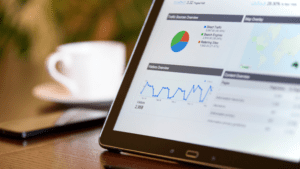The healthcare technology industry, also called HealthTech, has seen significant growth and innovation. HealthTech includes software and platforms that improve healthcare delivery and administration, such as telemedicine platforms, patient management software and patient medical records (PHI), prescription and pharmacy records, and health data analytics.
HealthTech is transforming patient care, and holds significant promise; however, the proliferation of healthcare technology has exacerbated cybersecurity challenges including securing sensitive health data against cyber threats. A security breach in healthcare is not just a financial issue, it can impact patient safety, violate regulatory compliance, and erode trust. Robust software security is essential for protecting healthcare data, maintaining compliance, and ensuring system reliability.
The Importance of HealthTech Software Security
HealthTech companies handle vast amounts of protected health information (PHI), making them a prime target for cyberattacks. Strong software security measures reduce risk in several key areas:
Protecting Sensitive Patient Data
HealthTech platforms store and process PHI, subject to regulations such as HIPAA in the U.S. and GDPR in the EU. A breach can result in legal consequences, fines, and loss of trust from both patients and healthcare providers. Security must be built into software at every level to protect this data from unauthorized access and misuse.
Ensuring Compliance with Healthcare Regulations
Regulations mandate strict security controls around data access, storage, and transmission. Non-compliance results in financial penalties and potential legal action. Security frameworks must be aligned with these regulations to meet compliance requirements while maintaining operational efficiency.
Reducing Cyberattack Risks
Healthcare systems are frequent targets for ransomware, data breaches, and supply chain attacks. Security measures that include vulnerability scanning, penetration testing, and threat modeling can help detect and mitigate these risks before they impact critical operations.
Maintaining System Reliability and Trust
Security failures damage credibility and disrupt patient care. HealthTech companies that invest in robust security practices strengthen trust with customers, investors, and regulatory bodies while ensuring the reliability of their platforms.
HealthTech Software Security Best Practices
A proactive, systematic approach to software security ensures both compliance and resilience against cyber threats. But cybersecurity can also feel daunting and neverending. To build a strong foundation and security mindset, start with the following best practices:
Integrate Security into the Software Development Lifecycle (SDLC)
Security is most effective when embedded in development, not added as an afterthought. Secure coding practices, threat modeling, and automated security testing should be standard in every development cycle. Regular security audits help identify and mitigate risks before deployment.
Encrypt Sensitive Data
Data encryption protects health records from unauthorized access.Apply strong encryption standards, such as AES-256, to both stored and transmitted data to prevent breaches and meet compliance requirements.
Enforce Strong Access Controls and Authentication
Access to PHI should be restricted through multi-factor authentication (MFA) and role-based access controls (RBAC). Limiting data exposure to only those who need it minimizes risk and strengthens security posture, in other words, preparedness for cyber attacks.
Implement Continuous Vulnerability Scanning and Testing
HealthTech systems must be continuously monitored for vulnerabilities. Regular scanning of applications, third-party dependencies, and infrastructure allows teams to address security flaws before they are exploited. Automated testing within CI/CD pipelines improves security without disrupting development workflows.
Meet and Maintain Regulatory Compliance
Security measures must align with HIPAA, GDPR, and other relevant standards. This includes logging access to sensitive data, maintaining audit trails, and implementing security controls that meet compliance requirements. Automated reporting streamlines the compliance process and reduces administrative overhead.
Application Security in HealthTech
Software applications sit at the core of HealthTech platforms, serving as the interface between healthcare providers, patients, and medical devices. Securing applications requires more than just perimeter defenses like firewalls; code-level security is essential to prevent breaches. To secure HealthTech software applications, implement application security tools and processes that enable:
- Proactive Vulnerability Management: Identifying and fixing vulnerabilities early in the development process reduces the attack surface, or the number of potential entry points or vulnerabilities within a system that can be exploited. The ideal state is to catch all issues before they’re released into production. Code reviews, security patching, and automated security scanning help maintain secure applications as catching every issue in development isn’t practical given new vulnerabilities are discovered in live applications regularly. Therefore, vulnerability management must include automation and unlimited scanning to catch issues early, and integrated tools, customized alerts, and issue management to quickly fix issues once they’re identified. SOOS’s application security platform offers exactly this.
- Third-Party Component Security: Many HealthTech applications rely on open source components, which can introduce vulnerabilities if not properly managed. Software Composition Analysis (SCA) helps identify risks in third-party dependencies.
- Secure APIs: APIs facilitate communication between healthcare systems, but unsecured APIs are a common attack vector. Implementing authentication, encryption, and regular API security testing helps mitigate this risk.
How SOOS Strengthens HealthTech Software Security
SOOS provides a comprehensive application security platform that is easy to integrate and cost effective for HealthTech businesses. Here’s how SOOS helps HealthTech companies strengthen their software security posture while maintaining compliance
Comprehensive Application Security
HealthTech applications rely on open source libraries. SOOS scans dependencies for known vulnerabilities and license compliance issues and provides recommendations for remediation, ensuring third-party components do not introduce security or business risks. SOOS is the only application security platform with deep-tree scanning to uncover vulnerabilities that other tools miss, deep in your application’s dependency tree.
A Unified View of Software Risk
SOOS offers one centralized platform with tooling to find vulnerabilities at every stage of software development, and in live environments. This includes Software Composition Analysis (SCA), Static Application Security Testing (SAST), Dynamic Application Security Testing (DAST), Container Security, License Analysis, Governance and Compliance, and SBOM Management, which together provide thorough protection and compliance across your software ecosystem.
Automated Vulnerability Management and Continuous Scanning
SOOS integrates into CI/CD pipelines to provide real-time vulnerability scanning. This allows teams to detect and address security risks as part of their development workflow, minimizing disruptions, and reducing exposure to emerging threats. And because not all vulnerabilities pose the same level of risk, SOOS prioritizes vulnerabilities based on severity and business impact using automation and configurable business rules, allowing teams to focus on critical issues first while maintaining an efficient remediation process.
Built for Developers, Not Just Security Teams
SOOS is designed to fit seamlessly into development workflows without adding complexity. With a simple setup, integrations with popular CI/CD tools, and clear, role-specific security insights, it enables developers to manage security without disrupting productivity. Unlimited scanning, transparent pricing, and no vendor lock-in ensure teams can access the security they need without unexpected costs or rigid contracts.
Security Without Compromise
Unlike competitors that limit scans, SOOS offers unlimited security testing, allowing teams to integrate automated security at every stage of development. Continuous scanning ensures vulnerabilities are detected early, reducing security risks without the manual burden of determining when to scan or risking unscanned software going live. By embedding security directly into CI/CD pipelines, SOOS eliminates gaps in protection and enables organizations to implement a proactive security strategy.
Automated Compliance Reporting and Regulatory Support
SOOS simplifies compliance tracking with automated reports tailored to HIPAA, GDPR, and other regulatory frameworks. These reports help HealthTech companies maintain transparency, streamline audits, and reduce manual compliance efforts. SOOS also provides audit-ready logs, as well as point-in-time reporting if needed to demonstrate known and addressed vulnerabilities at any given time.
AppSec That Just Works
SOOS provides a developer-friendly, practical security solution that integrates effortlessly with existing tools. Its patented deep-tree scanning technology detects vulnerabilities other tools overlook, while an intuitive interface and dedicated customer support make security easy to adapt to your business and environment. With transparent pricing and ongoing platform improvements based on user feedback, SOOS delivers reliable, hassle-free application security.
HealthTech Software Security: From Daunting to Doable
HealthTech security is essential, but it doesn’t have to be overwhelming. Protecting patient data, ensuring regulatory compliance, and mitigating cyber threats require a proactive and integrated security strategy. Embedding security into development, continuously monitoring for vulnerabilities, and securing application dependencies are key to maintaining a strong security posture. SOOS provides automated tools to help HealthTech companies strengthen software security without adding complexity. To explore how SOOS can support your HealthTech security strategy, contact us or try SOOS for free today.













